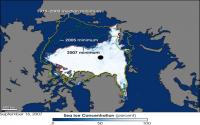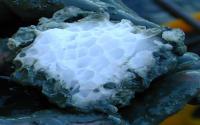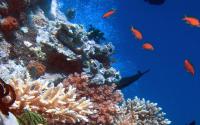Arctic Warming

Quicktabs: Keywords

In a massive new study published Wednesday in the influential journal Nature, no less than 50 authors from around the world document a so-called climate system “feedback” of warming soil, especially in the Arctic, that, they say, could make global warming considerably worse over the coming decades.
[ More ]
Confirming earlier research, scientists reported Wednesday that global warming is altering the ecology of the Arctic Ocean on a huge scale.
[ More ]
The Arctic’s ice is disappearing. We must reduce emissions, fast, or the human castastrophe predicted by ocean scientist Peter Wadhams will become reality
[ More ]
As climate scientists nervously watch the Arctic and high latitudes this summer — fearing how 2016’s record warmth could push the delicate system — two new pieces of data showing record rates of Arctic warming are hardly consoling.
[ More ]
The U.S. has lost a critical satellite from the Defense Meterological Satellite Program at a time when the Arctic, and other remote regions, are seeing rapid changes and scientists badly need these instruments to track them.
[ More ]
Permafrost may be mostly invisible underground, but the consequences of its thawing will be anything but. That's according to a new study that calculates the global economy could lose as much as $43 trillion by the end of the next century due to greenhouse gas emissions from thawing permafrost -- a figure much worse than previously thought.
[ More ]
A new study, just out in the Proceedings of the National Academy of Sciences, finds that as the Arctic Ocean warms and loses its sea ice cover, populations of phytoplankton will boom. This will, in turn, further amplify warming by 20 percent in a region that’s already heating up twice as fast as the rest of the planet.
[ More ]
The author points to the risk of a runaway greenhouse reaction as Arctic permafrost begins to melt, releasing trapped methane and accelerating the rate of global warming globally in a dangerous feedback loop.
[ More ]
For thousands of years, ice and harsh conditions have served as a natural barrier between species from the Atlantic and the Pacific oceans in the northern hemisphere. New research, however, shows that large fish populations will soon be able to make the journey northward and defy the barrier between the Atlantic and the Pacific which could have serious consequences for both fisheries and local ecosystems.
[ More ]
This week, scientists made a disturbing discovery in the Arctic Ocean: They saw "vast methane plumes escaping from the seafloor," as the Stockholm University put it in a release disclosing the observations. The plume of methane—a potent greenhouse gas that traps heat more powerfully than carbon dioxide, the chief driver of climate change—was unsettling to the scientists.
[ More ]